Which cars are congestion charge exempt?
The congestion charge was first introduced to London in 2003 by its first mayor, Ken Livingstone. It aimed to charge drivers a set daily fee for using busy London roads in a defined zone between 7am and 6pm.
Since then, a number of UK cities have begun to implement their own congestion zones, based on the current London model, such as Clean Air Zones (CAZ) and Ultra-Low Emission Zones (ULEZ).
These zones encourage drivers to use cleaner, more efficient vehicles, aligning with the UK's broader goal of reaching net-zero emissions by 2025. This all sounds well and good, however, there's no denying that congestion charges can be a pain.
To help you out, this guide explains everything you need to know about congestion charges, including how much you have to pay, when it applies and which cars are exempt from congestion charges.
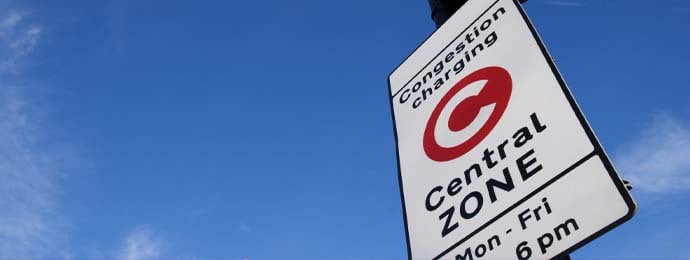
We discuss:
The congestion charge is a £15 daily charge that motorists have to pay if they want to drive into central London within the Congestion Charge zone from 7:00-18:00 Monday-Friday and 12:00-18:00 Sat-Sun and bank holidays. There is no charge between Christmas Day and New Year's Day (inclusive).
You must pay the Congestion Charge if you drive a combustion-engined vehicle, including hybrids, into London during its operating hours. However, beginning in December 2025, even drivers of zero-emission vehicles will be compelled to pay.
The congestion charge aims to reduce traffic congestion in the city centre, which was initially investigated in a 1964 UK Government report. The scheme is enforced by Transport for London (TfL). It is separate from the ULEZ (Ultra-Low Emission Zone), which operates in a larger area.
“Pay close attention when driving in a congestion charge zone. If you enter a congestion charge area, even for a couple of seconds, you will be charged and failure to pay can result in a £180 fine.”

Currently, congestion charges only operate in the City of London. Other city locations feature 'clean air zones' which operate similarly to the congestion charge to help improve air quality in the city.
London Congestion Charge
The London Congestion Charge zone is located in the City of London West End, located within the London Inner Ring Road. All roads around the zone perimeter are monitored by Automatic Number Plate Recognition (ANPR) cameras. You can use the Transport for London website to see if a specific address is in a congestion charge zone by entering the postcode before you drive through the zone.
Clean Air Zones
Clean Air Zones are parts of a city that have been targeted to improve air quality by discouraging high-emission vehicles from entering. No vehicles are banned in Clean Air Zones however, vehicles with insufficiently clean engines must pay a daily charge if they travel within the zone, which works 24 hours a day, every day of the year, from midnight to midnight.
Clean Air Zones are located in the following cities:
- Bath
- Birmingham
- Portsmouth
- Bristol
- Bradford
- Sheffield
- Tyneside
There are plans for a Clean Air Zone to be introduced in Manchester however, these plans haven't been put into place yet and have been delayed.

The Congestion Charge is a £15 daily charge and is enforced by Automatic Number Plate Recognition (ANPR) cameras.
Drivers who fail to pay the Congestion Charge within three days of travel will be issued a £180 Penalty Charge Notice (PCN). The charge is £90 if you pay your PCN within 14 days. You have 28 days to settle the charge or file a PCN challenge.
You must pay the Congestion Charge if you drive a vehicle that emits 76g/km CO2 or more during 07:00-18:00 Mon-Fri, 12:00-18:00 Sat-Sun and bank holidays. There is no charge between Christmas Day and New Year's Day bank holidays (inclusive). This includes most combustion-engined cars on the road, including hybrids.
Only zero-emission cars have been exempt from the Congestion Charge, such as electric vehicles and hydrogen fuel cell vehicles. However, from December 2025, even drivers of zero-emission vehicles will be required to pay the congestion charge.
If you can prove you live within the C-Charge zone, you'll be eligible for a 90% resident discount.
The following are fully exempt from the Congestion Charge, subject to a £10 annual registration fee:
- Blue Badge holders
- Roadside recovery vehicles
- Accredited breakdown vehicles
- Vehicles with nine or more seats
- Cars that emit 75g/km or less of CO2
- Zero-emission vehicles (Fully electric vehicles and any other zero emissions vehicles)
- Motor tricycles less than one metre in width and two metres in length (fully exempt)
To determine if your car is exempt from the Congestion Charge in London, whether it's a UK-registered vehicle or a non-UK car, you need to consider its emissions and other factors. Here's how you can check:
Check Emission Standards: The emission standard for your vehicle can typically be found in your vehicle logbook or on the official GOV.uk website. Emission standards are usually measured in grams of carbon dioxide (CO2) per kilometre (g/km). For exemption from the Congestion Charge, your vehicle must emit 75g/km CO2 or less.
Identify Zero-Emission Vehicles: Fully electric vehicles and other zero-emission vehicles, such as hydrogen fuel cell vehicles, are exempt from the Congestion Charge. These vehicles produce no tailpipe emissions and are considered environmentally friendly.
Check Vehicle Type: Some vehicles, like those with nine or more seats and motor tricycles that meet specific size criteria, may also be fully exempt from the Congestion Charge.
Refer to Official Sources: To get the most accurate and up-to-date information on whether your vehicle is exempt, it's advisable to check the official Transport for London (TfL) website. They regularly update their exemption criteria, so you can find the most current information there. Non-UK residents or visitors should also refer to this source for the latest information.
Consult Your Vehicle Documents: Your vehicle's registration documents or logbook may contain information about its emissions and whether it qualifies for an exemption. If in doubt, you can also contact your vehicle manufacturer or dealer for guidance.
Consider Future Changes: Keep in mind that the criteria for exemptions can change over time. As mentioned earlier, even zero-emission vehicles will be required to pay the Congestion Charge from December 2025. It's essential to stay informed about any policy changes that may affect your exemption status.
Non-UK residents and those with non-UK-registered cars should also consult the official TfL website for information specific to their situation. By following these steps and staying informed, you can determine whether your car is exempt from the Congestion Charge in London and avoid unnecessary charges and fines. You can check the exemption status of non-UK cars by visiting TfL's official website.
With London's congestion charge expanding and Clean Air Zones (CAZ) being introduced in more and more cities, there's never been a better time to lease a car exempt from congestion charges. Check out this list of cars that are exempt from any congestion charges based on style and practicality:
Top 10 Congestion Charge Exempt Cars 2025
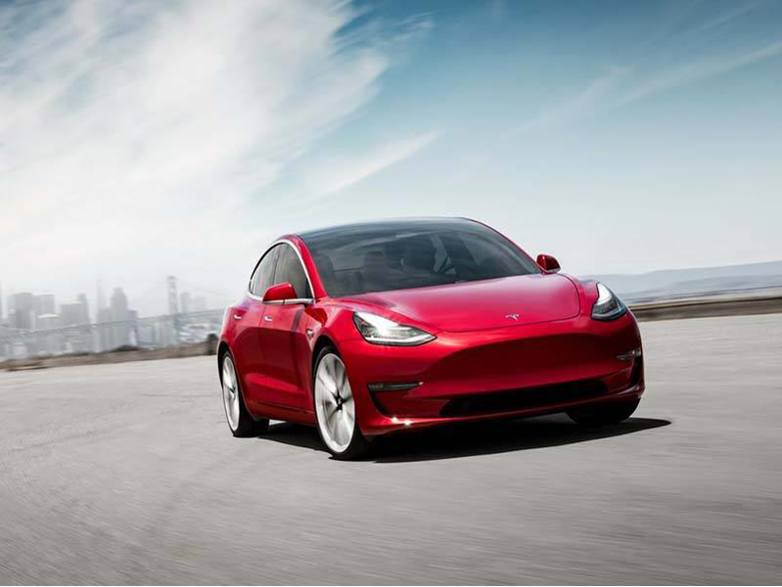
1. Tesla Model 3
Despite being released a few years ago, the Tesla Model 3 is one of the best electric cars thanks to its excellent mile range and minimalist interior. It also offers access to the Tesla Supercharger network, which offers simple, lightning-fast charging at over 600 locations around the UK.
Long-range models can manage up to 436 miles of range between charges, so you won't have to worry about running out of battery charge when getting stuck in London's heavy traffic.
The Model 3 is particularly popular with company car drivers due to its low BIK tax rates and fully electric engine meaning you won't have to pay any congestion charges.
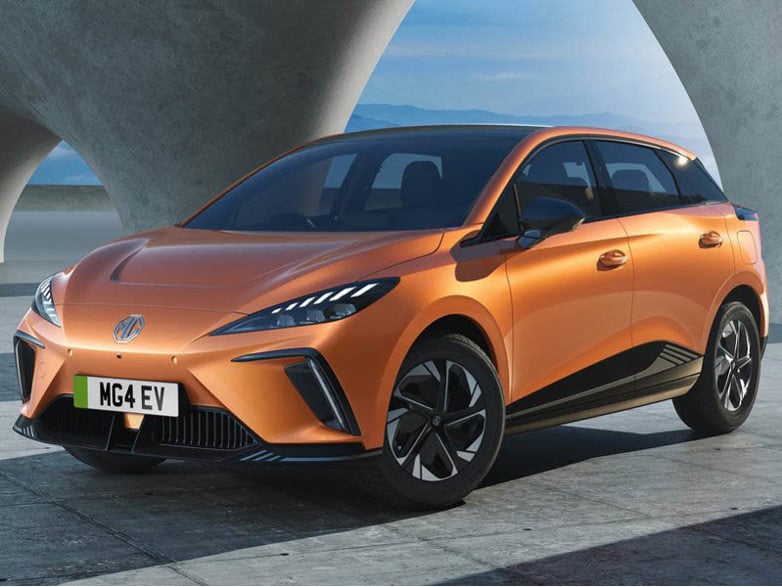
2. MG MG4 EV
The MG4 EV is a compact crossover that's perfect for city dwellers who are looking for a car to accommodate the whole family. It comes with a spacious and comfortable interior that's complemented by a range of premium features, like a panoramic sunroof, touchscreen infotainment system, and advanced safety features.
It comes with a choice of two battery options, 64kWh and 77kWh, the latter of which returns up to 323 miles of range and more importantly, has a predicted city range of 429 miles.
It's unique design will also make you stand out in the metropolis, which is always a bonus.
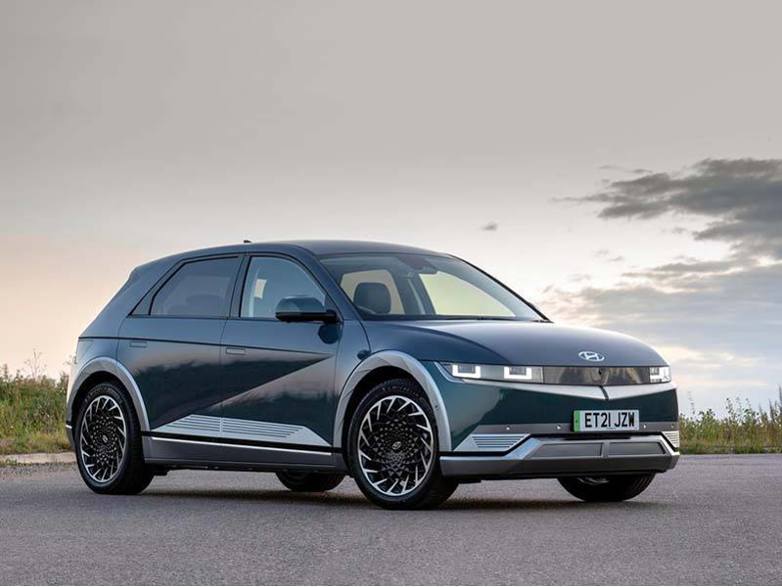
3. Hyundai Ioniq 5
If you're looking to avoid congestion charges and want to stand out, the Hyundai Ioniq 5 is an excellent option with its unique retro and futuristic design. The Ioniq 5 has plenty of angular creases in the bodywork helping it stand out on the road.
Inside it has a plush, comfortable interior that's very spacious with high-tech screens and eco-friendly materials used throughout. The Ioniq 5 offers a decent range of 354 miles and has the ability to use super fast 350kW charging which is perfect if you're on the go in the city.
Plus, with Hyundai's five-year warranty, it's no wonder the Ioniq 5 is such a popular electric leasing option.
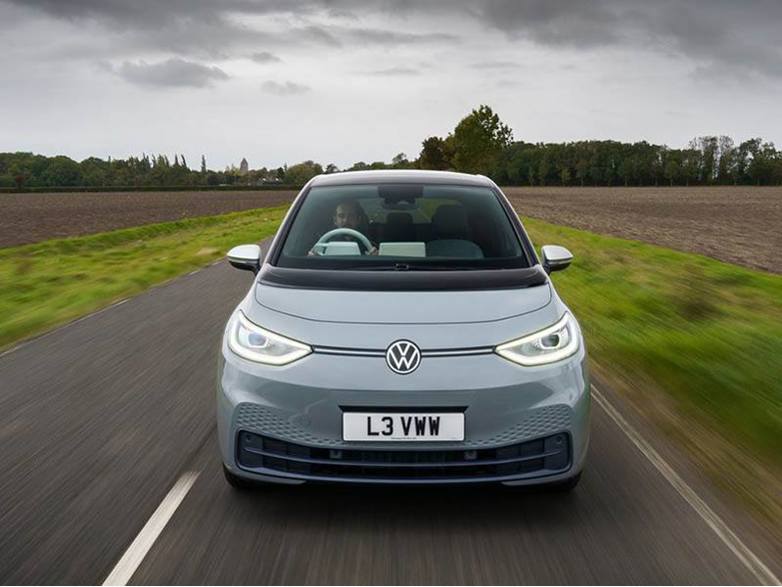
4. Volkswagen ID.3
The Volkswagen ID.3 looks like something from the future with its aerodynamic styling and funky design. It's a practical, relatively affordable electric hatchback ideal for someone who wants to avoid the congestion charges.
The ID.3 has a range of up to 241 miles as standard, but top-spec models are capable of managing up to 369 miles of range. It's also fun to drive thanks to its rear-wheel-drive setup, balanced weight distribution, and low centre of gravity, making it feel like it hugs the road while driving.

5. Dacia Spring
If you're after an affordable electric car that will get you from A to B in the city, consider the Dacia Spring. A city car that's tailor-made for urban driving, it's reliable, straightforward, and cost-effective.
It features a small 26.8kWh battery that's paired with a 64bhp electric motor, returning 140 miles of range on a single charge. Inside, the Spring is everything you need from a city car, simple and with plenty of space.
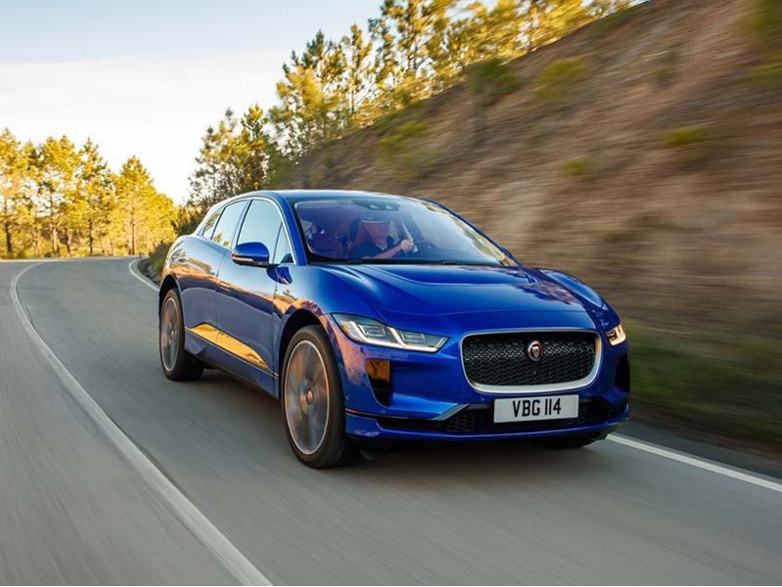
6. Jaguar I-Pace
The Jaguar I-Pace is an excellent choice if you are after a more family-friendly lease vehicle to avoid congestion charges. Mixing luxury and practicality, the I-Pace offers mind-blowing performance car and environmental benefits when driving around the city.
The Jaguar I-Pace has a range of 292 miles between charges and has the capability of quick-charging with a 100kW charging point that can take the car from 0 to 240 miles of range in only 40 minutes.
Inside the SUV, it's very comfortable, thanks to the abundance of head and legroom in the front and back, making it one of the Best Electric Cars for Families.
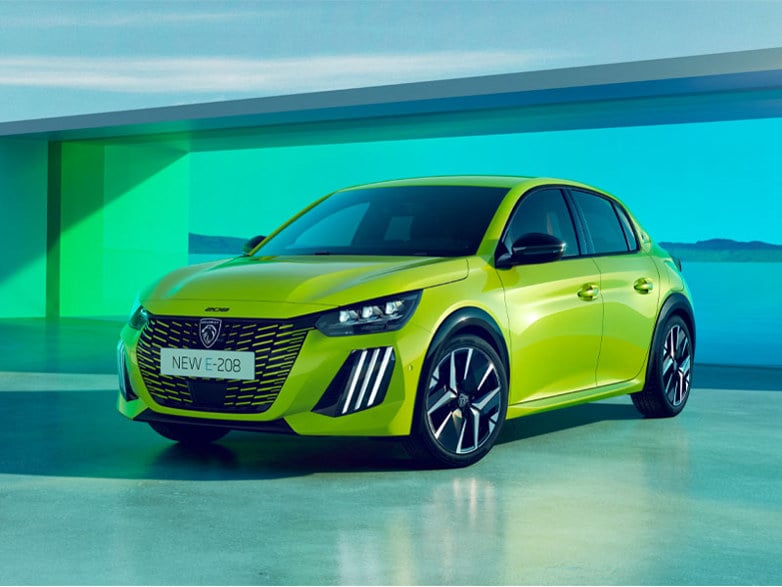
7. Peugeot e-208
The Peugeot e-208 is a great electric option for saving money on congestion charges. It has a decent range, looks modern and is a practical day-to-day car to drive around the city. It has a distinctive look with a sculpted bonnet, three-claw LED light designs and a prominent rear.
The e-208 has a nippy performance around town. All models have a 156hp electric motor and 51kWh battery capable of 254 miles when fully charged. It also features rapid charging technology, which can add up to 62 miles in just 13 minutes.

8. Porsche Taycan Saloon
The Porsche Taycan Saloon isn't the cheapest vehicle to avoid congestion charges. Still, it may be for you if you want to drive around the city in style and luxury. Its curvy bonnet, subtle air intakes and sloping roofline make it look incredibly futuristic.
The Taycan is one of the best electric cars available, with superb build quality and class-leading technology. The all-electric saloon has sports car-like handling and supercar-rivalling levels of acceleration with a range of around 300 miles before you'll need to charge it again.
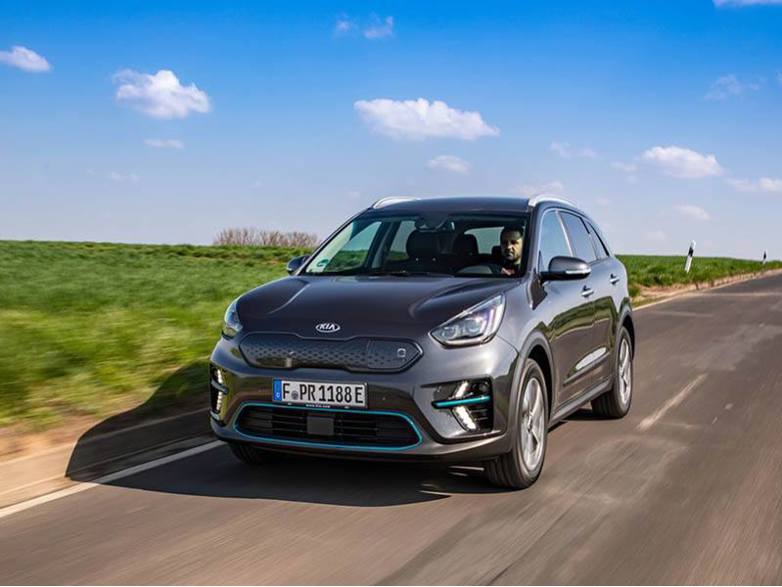
9. Kia Niro EV
The Kia e-Niro has a similar appearance to the petrol and diesel Niro models. However, there are some design differences, such as a closed-off grille that helps to reduce drag. The e-Niro also has a new front bumper and alloy wheels with blue bodywork accents to show its eco credentials.
The e-Niro has a driving range of 282 miles per charge, thanks to a 64kWh battery powering its single electric motor. Plus, it produces zero tailpipe emissions, meaning you won't have to pay any congestion charges.
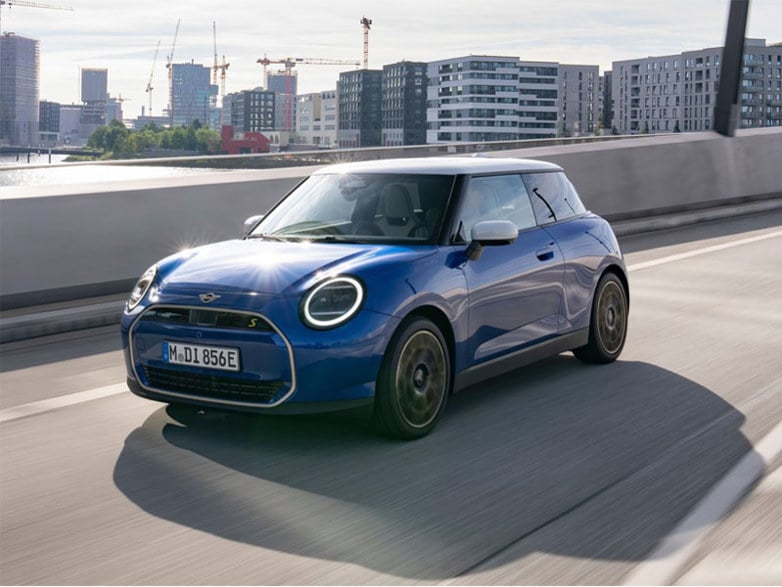
10. MINI Cooper Electric
The Mini is the quintessential British city car, and now with an electric powertrain, it's the perfect lease car to help you avoid pesky congestion charges while also looking good.
It comes with a 32.6kWh battery and an 181hp motor that returns up to 145 miles of range, perfect for any cross-city journey.
Want to know more?
Call Nationwide Vehicle Contracts on 0345 811 9595 on all things car leasing, or check out our motoring guides for expert advice.
Guide Information
Originally published: 22nd April 2022
Last updated: 8th January 2025
